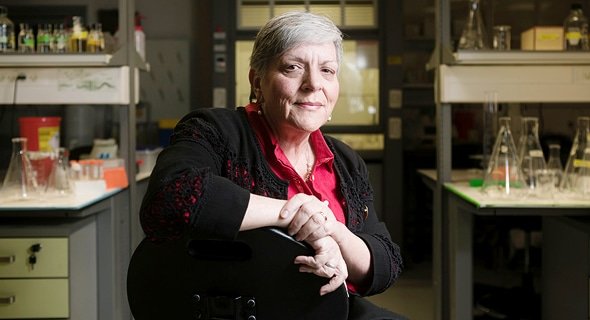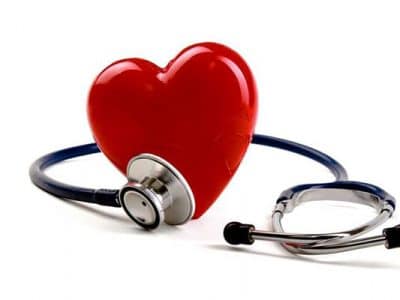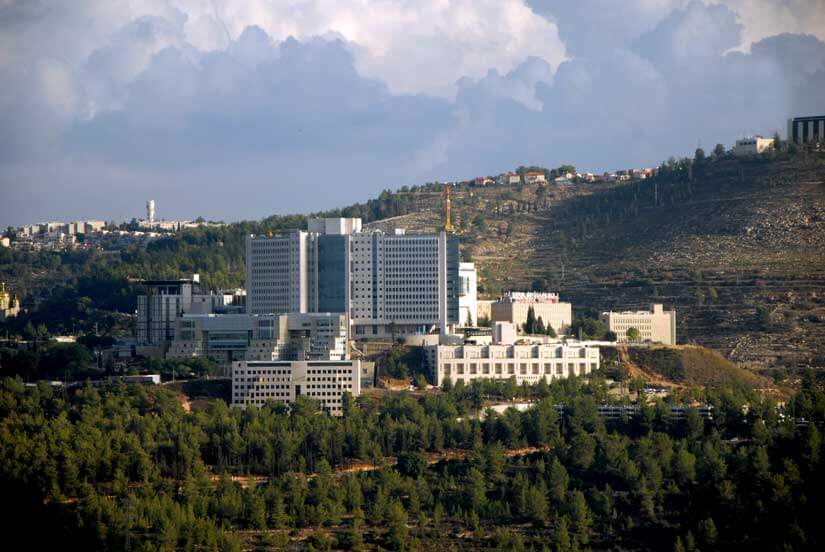Treatment of leukemia in Israel
Leukemia treatment in Israel is carried out using the most modern means and medications.
Up to 95% of leukemia patients were completely cured at the Hadassah Clinic. The success rate depends on the type of the disease, its stage of development, and many other factors.
One of the main advantages of leukemia treatment in Israel at Hadassah Clinic is the multidisciplinary approach, which is especially necessary for such complex malignant diseases. The specialists in the Department of Hematology are constantly consulting with leading microbiologists, gastroenterologists, hepatologists, neuro-oncologists and other experts.
The clinic’s medical staff, made up of Israel’s leading hematologists, uses innovative medications and modern diagnostic methods based on molecular biology and immunofluorescence to make an accurate diagnosis, perform bone marrow transplants at a higher level and monitor the results of treatment.
Bone marrow transplantation is one of the most effective methods of fighting leukemia, and is especially preferred in the treatment of children because it can lead to a complete cure. It is often used after unsuccessful chemotherapy.
In 2018, the clinic’s BMT department was the first in Israel to receive European JACIE accreditation.
By 2023, the department had performed more than 4,300 successful BMT procedures, of which more than 1,450 were performed on children.
The clinic has access to Israeli, American and European databases with information on potential bone marrow donors. This is an additional benefit of leukemia treatment in Israel at Hadassah Clinic and greatly increases the chances of finding the most suitable donor promptly, which in turn saves the lives and health of a greater number of patients.
Make an appointment with the Israeli leading specialists.
The most common types of leukemia
Leukemia is a type of cancer that affects the blood and bone marrow, resulting in an abnormal production of white blood cells. There are several different types of leukemia, each with distinct characteristics and treatment options.
The most common types of leukemia are acute lymphoblastic leukemia (ALL), chronic lymphocytic leukemia (CLL), acute myeloid leukemia (AML), and chronic myeloid leukemia (CML). ALL is a fast-growing leukemia that primarily affects children and young adults. CLL, on the other hand, is a slow-growing leukemia that typically affects older adults.
AML is a fast-growing leukemia that affects both children and adults. It is characterized by an accumulation of immature myeloid cells in the bone marrow and blood. CML is a slow-growing leukemia that mostly affects adults. It is caused by an abnormality in the chromosome that leads to the production of an abnormal protein, resulting in the overproduction of white blood cells.
Another type of leukemia is hairy cell leukemia, which is a rare type of chronic leukemia that primarily affects middle-aged men. It is characterized by abnormal B cells that have hair-like projections on their surface.
There are also other rare types of leukemia, including T-cell leukemia, prolymphocytic leukemia, and adult T-cell leukemia/lymphoma. Each of these types of leukemia has unique characteristics and requires specific treatment approaches.
Treatment for leukemia typically involves chemotherapy, radiation therapy, and/or bone marrow transplantation. The type of treatment used depends on the type and stage of leukemia, as well as the patient’s age and overall health.
Leukemia diagnostics in Israel

Leukemia diagnostics in Israel
Imaging tests such as CT scans, MRI scans, and ultrasounds may also be used in the diagnosis and treatment of leukemia. For example, a CT scan can provide detailed images of the chest, abdomen, and pelvis, which can help doctors determine the extent of the cancer and whether it has spread to other parts of the body. MRI scans can provide detailed images of the brain and spinal cord, which can be useful in diagnosing leukemia that has spread to the central nervous system. Ultrasound can also be used to detect and monitor the progression of leukemia.
In addition to their use in diagnosis, these imaging tests can also be used to monitor the effectiveness of treatment. For example, after chemotherapy or radiotherapy, a CT scan or MRI scan may be used to assess whether the cancer has decreased or disappeared.
Treatment of leukemia in Israel
The Hadassah Medical Center provides cutting-edge kinds of treatment for leukemia, including chemotherapy, targeted therapy, and bone marrow transplantation (BMT).
In addition to medical treatment, the Hadassah Medical Center provides comprehensive support to patients with leukemia. The center offers psychological consultations, nutritional support, and rehabilitation services to help patients cope with the physical and emotional challenges of cancer treatment.
The Hadassah Medical Center has a multidisciplinary team of experts who work together to provide personalized care to patients with leukemia. The team includes hematologists, oncologists, radiotherapists, pathologists, and other specialists. They work closely with each patient to develop an individualized treatment plan that considers the patient’s age, overall health, and specific type of leukemia.
Chemotherapy
Chemotherapy is the most common treatment for leukemia. It involves the use of powerful drugs to kill cancer cells. Chemotherapy drugs are administered orally or intravenously, depending on the type and stage of leukemia. The Hadassah Medical Center uses the latest chemotherapy drugs, which are highly effective in treating leukemia.
Targeted therapy
Targeted therapy is a newer approach to treating leukemia. It involves the use of drugs that specifically target cancer cells, sparing healthy cells. The Hadassah Medical Center has access to the latest targeted therapy drugs, including monoclonal antibodies and small molecule inhibitors. These drugs have fewer side effects than chemotherapy and are highly effective in treating some types of leukemia.
Immunotherapy
Israel is at the forefront of developing innovative therapies for leukemia, including immunotherapy. This approach harnesses the power of the immune system to fight cancer. In some cases, immune cells are removed from the patient and genetically engineered to recognize and attack cancer cells. These cells are then infused back into the patient’s body, where they can target and destroy cancer cells.
Other types of immunotherapy work by blocking the signals that cancer cells use to evade detection by the immune system.
Immunotherapy has shown promising results in clinical trials and is an exciting new avenue in the treatment of leukemia. Israeli medical professionals are actively involved in research and development of this approach, and are helping to advance the field of leukemia treatment.
Bone marrow transplantation (BMT)
BMT is a treatment option for leukemia that involves replacing a patient’s diseased bone marrow with healthy bone marrow. BMT is used when other treatments fail or when leukemia has recurred. The Hadassah Medical Center is a leader in bone marrow transplantation, with a highly skilled team of specialists and state-of-the-art facilities. The center offers both autologous and allogeneic transplantation, depending on the patient’s needs.
Get a consultation with leading specialists in leukemia treatment in Israel.













